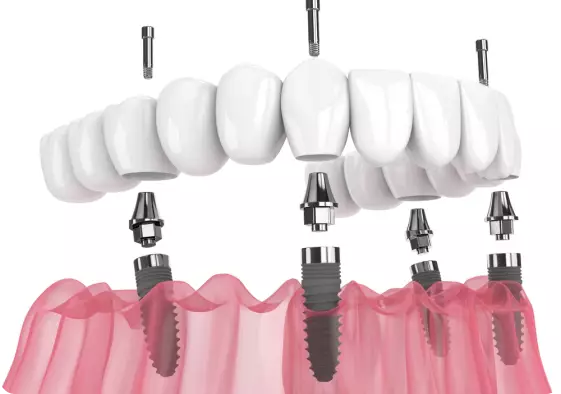Dental Implants
Rediscover A Complete And Lasting Smile With Dental Implant Treatment
Navigating life with missing teeth can be a challenge, affecting not only your oral functionality but also the desire to share your smile. Dental implants can be an excellent choice if you are looking for a long-lasting solution to replace missing teeth. They look and feel like your natural teeth, providing a strong base for your new artificial teeth.
At Lower Plenty Dental, we offer a range of tooth replacement options tailored to your dental needs and lifestyle. From dental crowns to cover damaged teeth and dental implants, dentures and bridges for multiple missing teeth, we aim to provide tailored treatments focusing on your oral health and smile aesthetics.

What Are Dental Implants?
Dental implants are artificial tooth roots placed into the jawbone beneath the gum line. Once in position, they integrate with the jawbone, providing a sturdy foundation for replacement teeth. Dental implants can replace a single tooth or be part of a bridge for multiple teeth. They can also provide stability to a full denture. What sets implants apart is their ability to offer these solutions without altering the shape of your natural teeth. Importantly, implants match the strength of your natural teeth, ensuring a robust and durable replacement option.
Dental implants offer a range of benefits, such as:
- They are easy to maintain and last a lifetime with proper care.
- Restore your ability to bite, chew, and speak without discomfort.
- Seamlessly blend with your existing teeth for a natural-looking smile.
- They stimulate the jawbone, preventing bone loss and preserving facial structure.
- They prevent adjacent teeth from shifting, preserving proper bite alignment
Dental Implant Procedure In Lower Plenty
During your initial examination, we determine whether there is sufficient bone volume for the implant. It involves taking your medical history, radiographs or X-rays to determine your eligibility for the implant procedure. The film also allows us to select the correct components required and guide the positioning of the implant. Some factors we assess include oral health, any existing dental problems or disease, bone volume and lifestyle factors such as smoking.
Next, an appointment is scheduled to place the implant with the implant surgeon. Depending on the type of implant system used, there is usually a period of one to three months between the placement of the implant and the restoration of the tooth. This allows the bone to knit or fuse with the titanium.

There are two main steps in replacing a missing tooth with an implant-retained crown.
- Firstly, the titanium implant is placed into the jawbone. The implant will act like the root of a tooth, with the bone knitting around the implant and giving the implant enough strength to attach a crown.
- Secondly, a crown will be constructed and attached to the implant. Several appointments are required to plan and create a dental implant-retained crown.
Proper aftercare and maintenance of your implants are essential. It includes consistent oral hygiene practices and regular checkups. Our dentist or dental hygienist will instruct you on the best techniques for your case.
Reveal A Vibrant & Healthy Smile!

